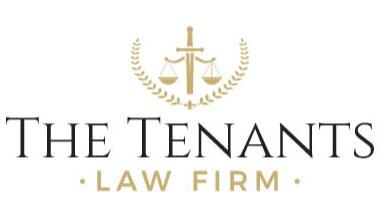When Can a Landlord Evict a Tenant for Not Paying Rent in California?
A landlord can evict a tenant who fails to pay rent in California if they follow the proper eviction procedures. This article will explain how your landlord can evict you for not paying your rent.
When Is Rent Due in California?
Rent is due at the first of the month for most tenants. This is true even in instances where the first of the month falls on a weekend or holiday. Immediately after the tenant does not pay their rent on time, the landlord is legally allowed to start taking steps to evict the tenant. This means that your landlord is not required to give you a grace period before charging a late fee for paying your rent late or before taking steps to begin the eviction process.
However, as a tenant, you can come to a separate agreement with your landlord. The agreement binds both you and your landlord to those terms if it is included in the lease. For example, it is common for California landlords to wait three days after rent is due to charge a late fee for nonpayment. Another common lease term is for the landlord to agree that rent will be due the first business day if the beginning of the month falls on a holiday. No matter what terms you and your landlord agree to, it must be contained within the written lease agreement.
Three-Day Notice to Pay Rent or Quit
Under California Code of Civil Procedure § 1161(2), the three-day notice must tell the tenant that if they do not pay their rent within three days of receipt of the notice, the landlord will begin eviction proceedings against the tenant.
As soon as you fail to pay your rent, the landlord can serve you with a three-day notice. If your landlord gives you a three-day notice to pay rent or quit, it must be in writing and include the following information:
-
Name, address, and phone number of the person to whom the rent must be paid, along with the usual days and hours that the person is available to receive the rent payment,
-
Date the demand to pay rent or quit was served on the tenant,
-
Name and address of the tenant,
-
A statement that the tenant owes the landlord rent and must pay it within three days or eviction proceedings will begin,
-
An accurate account of the total amount of rent due, and
-
A certificate of service that states how the landlord gave the demand to the tenant.
Your landlord can either personally serve you or someone of suitable age the three-day notice at your apartment or place of business, or post the notice in a conspicuous place on the rental property (such as taped to your front door) and mail you a copy.
How Can You Respond to a Three-Day Notice?
Once your landlord serves you with a three-day notice, there are different ways for you to respond. You could pay the rent within three days of receiving the notice. If you choose to pay the rent, then your landlord cannot proceed with the eviction. You could also move out of the rental unit within three days of receiving the notice, and in this scenario, your landlord will likely use your security deposit or file a lawsuit to cover any unpaid rent. Finally, you could choose not to comply with the three-day notice, meaning that you do not pay rent or move out. If you decide not to comply with the notice, the landlord can proceed with the eviction at the end of the three days.
